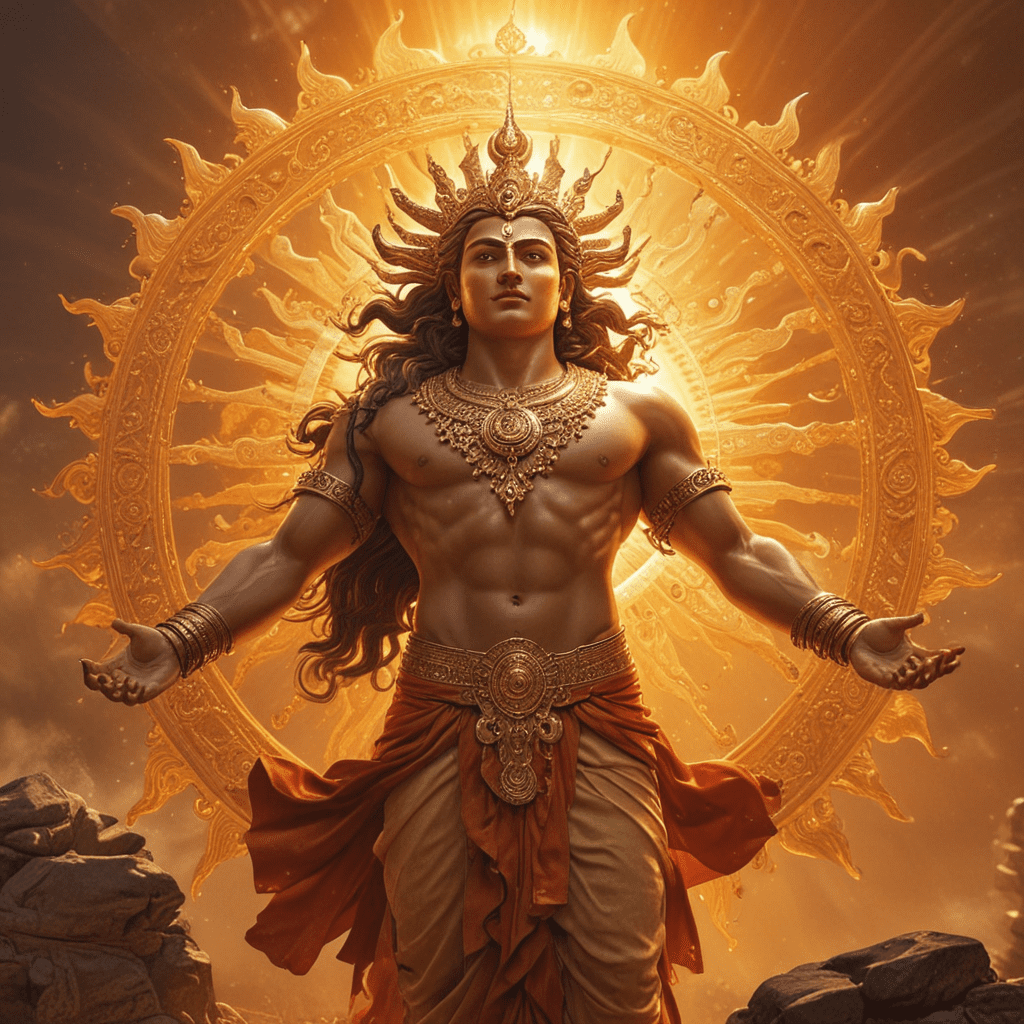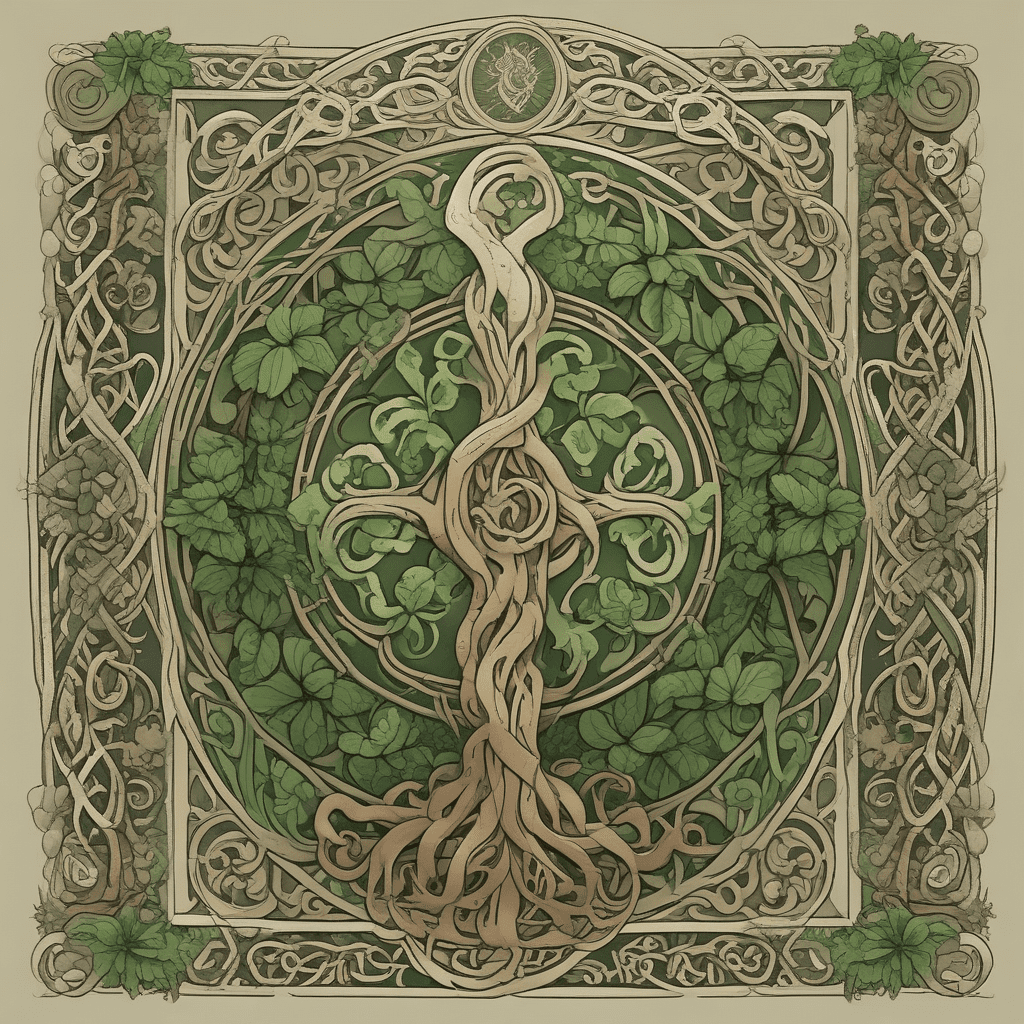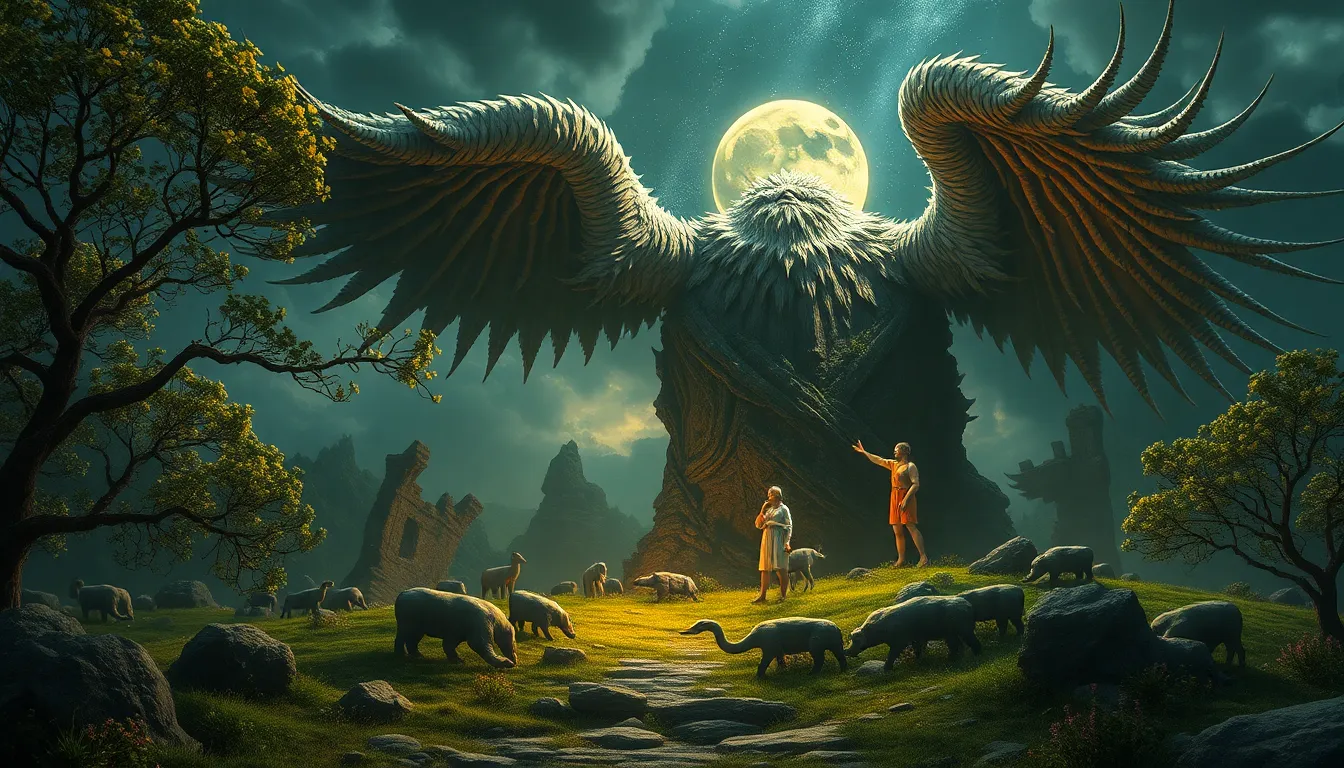The Myth of Surya: The Sun God in Hinduism
Introduction: The Sun God in Hinduism
In the vast pantheon of Hindu gods, Surya, the Sun God, holds a prominent position. He is revered as the source of life, energy, and knowledge. His radiant presence illuminates the world, dispelling darkness and ignorance. In Hindu mythology, Surya is a revered deity associated with vitality, radiance, and the cycle of time.
The Birth and Origins of Surya
The origins of Surya are shrouded in mystery and legend. According to one myth, he emerged from the cosmic ocean during the churning of the milky sea by the gods and demons. As the sea churned, fourteen precious objects emerged, including Surya, who rose as a blazing orb of light.
The Chariot of Surya: A Symbol of Radiance and Energy
Surya is often depicted riding a magnificent chariot drawn by seven majestic horses. The chariot represents the Sun's celestial journey across the sky. The horses symbolize the seven days of the week or the seven colors of the rainbow. Their hooves create thunder as they thunder across the heavens, illuminating the world below.
Surya and the Vedas: Hymn of Praise to the Sun
The Vedas, the ancient Hindu scriptures, contain numerous hymns dedicated to Surya. The most famous is the Gayatri Mantra, a sacred incantation recited by Hindus worldwide. The mantra invokes Surya as the remover of darkness and the bestower of knowledge and enlightenment.
The Importance of Surya in Vedic Rituals
In Vedic rituals, Surya is invoked as the witness of all actions and the guardian of truth. He is the deity who oversees oaths, promises, and contracts. His presence is believed to ensure honesty and integrity in human affairs. Surya's importance extends to the realm of astrology, where he is associated with the planet Sun and is considered a beneficent influence.
6. Surya in the Ramayana and Mahabharata
Surya plays a significant role in the two great Hindu epics, the Ramayana and the Mahabharata. In the Ramayana, he is the father of Rama, the hero of the epic. He assists Rama in his battle against the evil demon king Ravana, providing him with guidance and protection. In the Mahabharata, Surya is the father of Karna, one of the most tragic heroes of the epic. Karna is a powerful warrior who fights valiantly but is ultimately defeated due to his tragic destiny.
7. The Myth of Surya and His Wives
Surya's wives are known as Samjna, Chhaya, and Ragyi. Samjna, the daughter of the celestial architect Vishwakarma, is the goddess of twilight. Unable to bear the intensity of Surya's radiance, she creates a shadow form, Chhaya, to take her place. However, Surya discovers the deception and curses Chhaya, causing her son Shani to be born with a malefic gaze. Ragyi, a horse-headed goddess, is the daughter of Hiranyakasipu, the demon king. Surya marries Ragyi out of compassion, but she remains childless.
8. The Symbolism of Surya: Light, Consciousness, and Knowledge
Surya is not only a physical representation of the Sun but also a symbol of light, consciousness, and knowledge. He illuminates the world both physically and spiritually. In Hindu philosophy, Surya represents the inner light of wisdom and knowledge that dispels ignorance and darkness. He is the embodiment of pure consciousness and the source of enlightenment.
9. Surya, the Healer and Protector
Surya is revered as a healer and protector in Hindu tradition. His rays are believed to have healing properties, and he is invoked to cure diseases and ailments. As the guardian of the world, Surya protects against evil forces and ensures the well-being of all living beings. He is often depicted holding a lotus flower, which symbolizes purity, fertility, and the power of creation and destruction.
10. Conclusion: The Enduring Legacy of Surya
The myth of Surya continues to inspire and fascinate people around the world. His story is a testament to the power of light and knowledge in overcoming darkness and ignorance. As the Sun God, Surya remains an eternal symbol of hope, renewal, and the enduring cycle of life. His legacy lives on through countless temples, festivals, and rituals dedicated to his worship in India and beyond.
FAQs
Q: Who is the father of Surya?
A: According to Hindu mythology, Surya is the son of the sage Kashyapa and his wife Aditi.
Q: What is the name of Surya's chariot?
A: Surya's chariot is known as the Sapta-Aswa Ratha, which means "chariot of seven horses."
Q: What is the significance of the Gayatri Mantra?
A: The Gayatri Mantra is a sacred hymn dedicated to Surya. It is considered one of the most powerful mantras in Hinduism and is believed to bestow knowledge, wisdom, and enlightenment.
Q: How many wives does Surya have?
A: Surya has three wives: Samjna, Chhaya, and Ragyi.
Q: What is the symbol of Surya?
A: Surya is often depicted with a lotus flower, which symbolizes purity, fertility, and the power of creation and destruction.




